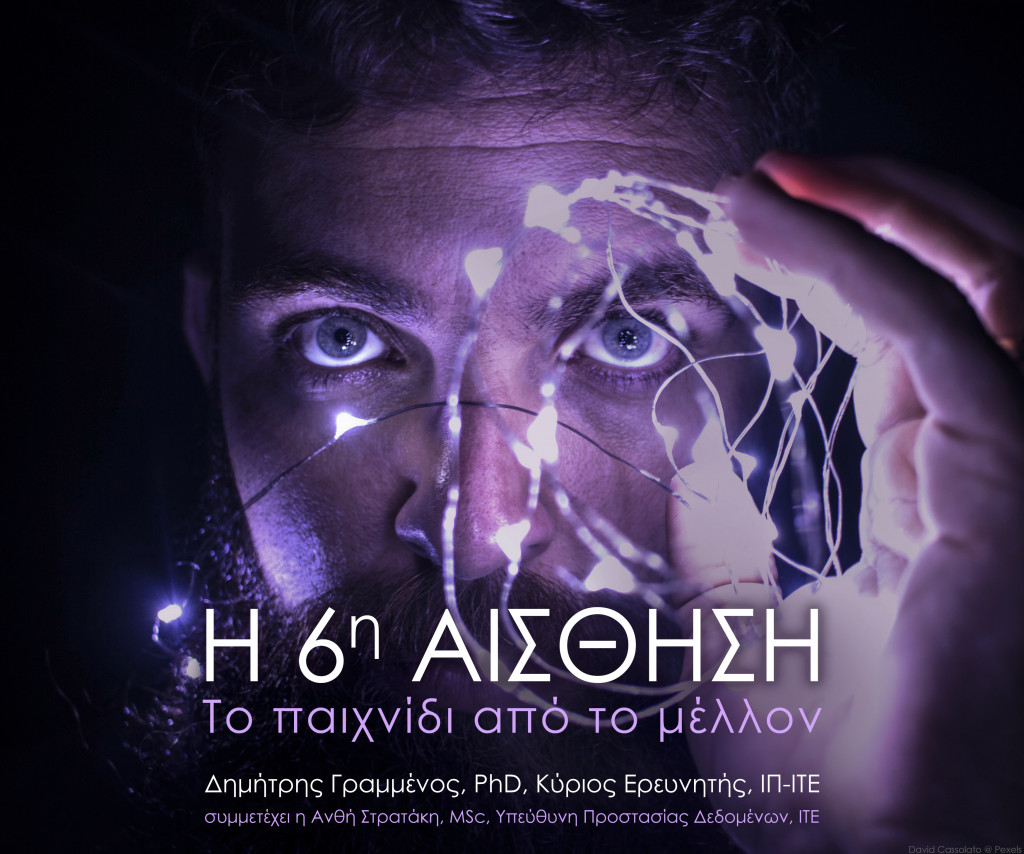Practice Description

The 6th Sense: The Game from the Future
by FORTH added on 18 Nov 2020
|
Brief description:
|
“The 6th sense” is a fast-paced speculative design workshop about creating a digital game employing futuristic brain-to-brain interaction (BBI) technologies. The workshop starts with a brief introduction to speculative design, to approaches for foreseeing potential futures and to the current status and envisioned capabilities of BBI technologies. During the workshop, participants are guided towards conceptualizing and designing a BBI game from the future through a series of engaging and fun series of design activities. They also are invited to think about the serious ethical issues that emerge from the application of BBI technologies and to suggest appropriate solutions. The main goals of the workshop include nurturing creative, critical and computational thinking, as well as, having fun. |
|---|---|
|
Photos:
|
|
|
Countries:
(where the practice takes place)
|
Greece |
|
Cities:
(where the practice takes place)
|
Not taking place at a specific city |
|
Organization name:
(running the practice)
|
FORTH |
|
Organization type:
|
Nonprofit |
|
Contact person:
|
Dimitris Grammenos |
|
Contact email:
(for further information and inquiries)
|
gramenos@ics.forth.gr |
|
Social media:
|
|
|
Related resources:
(e.g., web site, publications,media)
|
|
|
Participants’ age groups:
|
9 - 109 |
|
Indicative number of participants:
|
Number independent |
|
Oriented to a specific gender?
|
No |
|
Frequency:
(for the same group of participants)
|
Single-occasion |
|
Total duration:
(for the same group of participants)
|
2 hours |
|
Location:
(where the practice takes place)
|
|
|
What are the role(s) of the adult(s) running the practice?
|
|
|
During the practice, participants…
|
|
|
Participants work…
|
|
|
What type of materials do participants use?
|
|
|
Pedagogical approach:
|
|
|
Social justice/equity approaches:
|
|
|
Does the practice have (explicit or implicit) learning objectives?
|
Explicit: Introduce speculative design, brain-to-brain interaction (BBI) technologies and related ethical issues. |
|
Is the practice (explicitly or implicitly) connected to school curricula?
|
Yes, implicitly |
|
If connected in any way to school curricula, which subjects are covered?
|
|
|
Does the practice aim to have an impact on the engagement / interest of participants with a particular scientific topic, concept, phenomena, theory or career?
|
Yes: Get interested in brain-to-brain interaction (BBI) technologies and in design. |
|
Does the practice aim to have an impact on the attitude of participants with a particular scientific topic, concept, phenomena, theory, or career?
|
Yes: Think about and understand the serious ethical issues that emerge from the application of BBI technologies. |
|
Does the practice aim to have an impact on the behavior of participants related to a particular scientific topic, concept, phenomena, theory, or career?
|
Yes: Brain-to-brain interaction (BBI) technologies. |
|
Does the practice aim to have an impact on the development / reinforcement / practice of skills of participants?
|
Yes: Nurture creative, critical and computational thinking and conceptual design skills. |
|
Additional notes:
|